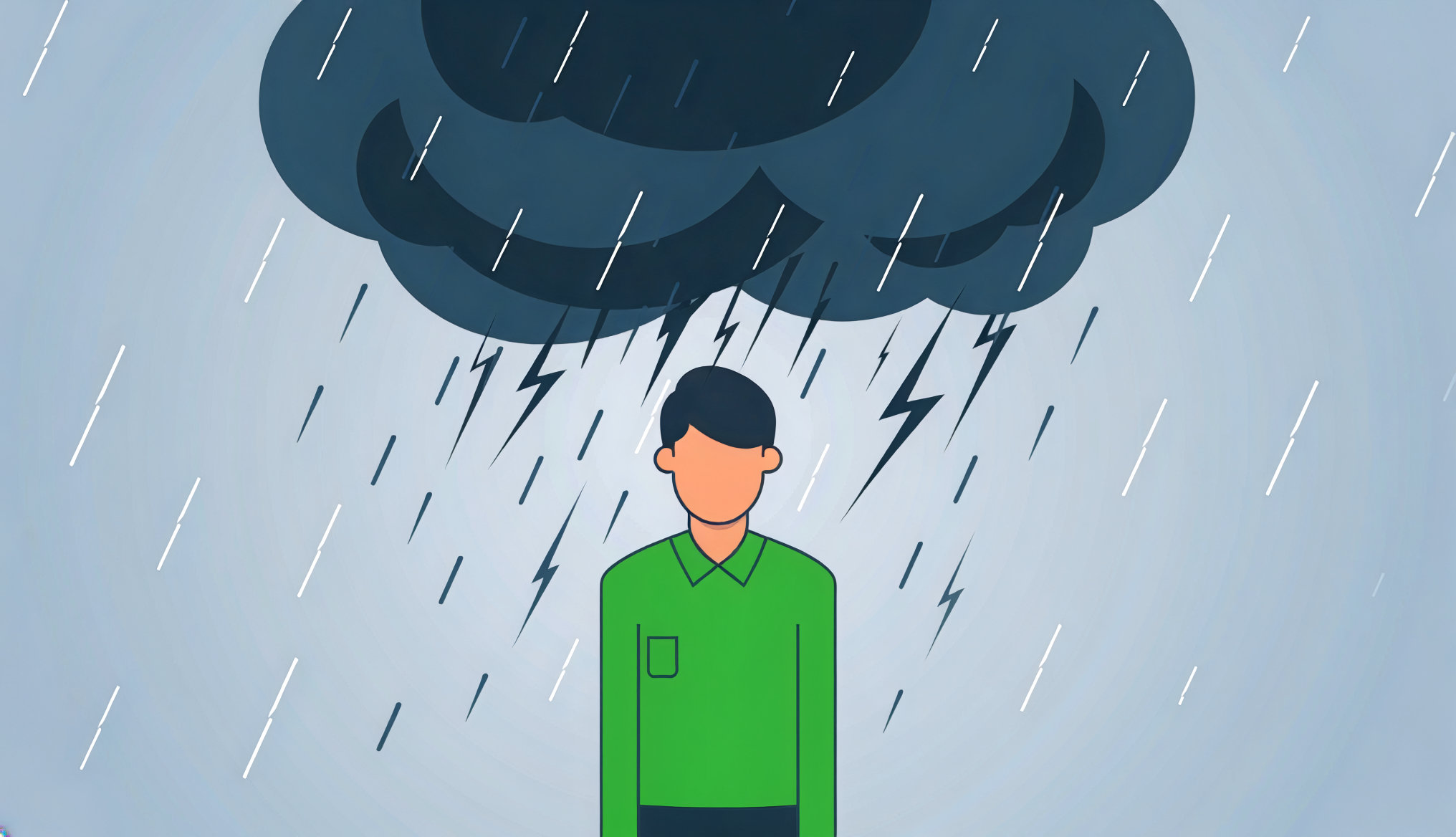Recognizing Chiropractic Burnout: Signs, Symptoms, and Solutions
December 10, 2025
Reading time: 5 minutes

Chiropractic care is rewarding, but the daily demands can sometimes leave you feeling drained. This article will help you spot the signs of burnout, understand its impact on your health and practice, and discover practical strategies to prevent and overcome it. By applying these insights, you’ll be better equipped to protect your well-being while continuing to provide exceptional care.
Key Concepts
- Spot early signs of chiropractic burnout
- How burnout differs from stress
- Tips to prevent and heal burnout
Every day, you focus on restoring your patients’ well-being with expert chiropractic adjustments. While it’s rewarding, the work can take its toll on you. It’s a strain on your body and also on your mind. After all, when you work as closely with patients as you do, you may inevitably be affected by the stress of constant, demanding encounters.
This strain can lead to burnout. Although it’s a well-documented condition, many practitioners fail to recognize or understand how to deal with burnout. Let’s look at the signs and learn how to avoid burnout as a chiropractor.
How do you know if you’re burned out?
Burnout has been described as ”the accumulation of unchecked and built-up stress over a period of time.” It’s crucial to recognize that burnout and stress are not the same. You can have a stressful day or week, but typically, simply getting away from the stressors and doing something you enjoy will relieve it. Burnout is a cycle of long-term stress. It builds up negative feelings that can make you withdraw instead of healing.
Do these symptoms of burnout sound like you?
Burnout isn’t only the result of patient-facing work. If you own your practice, you also deal with the stress of managing staff and handling issues like insurance payouts, mitigating malpractice risk, growing your patient base, and all the other challenges small business owners face.
While you may not want to admit to experiencing burnout, chances are your loved ones are noticing it. It can be helpful (and even a relief) to be open and share what you’re feeling. Think of it as the first step to healing. The signs that you are burned out may include:
- Feeling overwhelmed and emotionally exhausted at the end of the day
- Being quick to anger at work and at home
- Withdrawing from loved ones as a way of dealing with exhaustion
- Feeling like work is a burden with no reward
- Feeling like you want to escape, and there’s no way out
- Pondering changing careers or quitting work altogether
The consequences of chiropractic burnout
Dr. Gene Lockrow, owner of the Healing Arts Center in Lenexa, Kansas, notes that chiropractic burnout is prevalent. He cited a 2013 report in the Journal of Manipulative and Physiological Therapeutics, which found that 40% of practitioners have experienced issues with high or moderate stress.
In fact, the National Institute of Health coined a term for emotional exhaustion — burnout syndrome — defined as ”a psychological syndrome of emotional exhaustion, depersonalization, and reduced personal accomplishment that can occur among people who work with the general public in some capacity.”
Lockrow himself suffered a cardiac arrest in 2021 and said he’s definitely made some changes to his lifestyle to help avoid burnout as a chiropractor.
“After having a cardiac arrest, I learned to try to live in the present moment — life is too short, and you don’t know how much time you really have,” he shared. “It helps to love what you do. Being a healer is more of a calling than a job or something you do. Surround yourself with good people and compete with yourself only and not others.”
Lockrow added, “Don’t overextend yourself financially and maintain unrealistic expectations. Stress and burnout can be destructive to your health. Productive stress/pressure can improve your life and practice. Learn to know the difference”.
How do I avoid burnout as a chiropractor?
Lockrow’s experience and how he’s worked to overcome stress and prevent burnout are lessons worth learning. But where do you begin?
If you’ve experienced any signs of burnout, it’s time to focus on your emotional and physical healing. Chiropractors experience real burnout, and we mustn’t discount it. Psychologists suggest beginning with rebuilding and maintaining a foundation of basic healthy behaviors, including:
- A healthy diet and good hydration
- Adequate sleep and limited screen time
- Time for fun with family and friends
- Time to relax and free your mind
Once your foundation is strong, try these stress-relieving tips to help you avoid burnout:
- Thought exercises: Honestly answering questions like “what do I want, what don’t I want, and what needs to change?” without worrying about the life and career boundaries you’ve set for yourself. Write down your answers and/or explore with a loved one.
- Anger management: Talk honestly about what “gets to you” and why, in order to release pent-up feelings instead of holding them in, which can be harmful to your health.
- Transparency: Don’t be ashamed to express your feelings, fears, and dreams to your loved ones. They want to listen and support you.
- Seeking professional help: It’s not a sign of weakness to seek the help of a counselor. Talking to someone not emotionally involved can help you gain the clarity you need.
Adding to this list, Lockrow advises having interests outside of work. “Hobbies aren’t frivolous; they’re healthy and necessary. Do what makes you happy and helps you disconnect from the office.”
By taking time to focus on your own well-being, you’ll better serve your patients and yourself. You may find that chiropractic burnout and the healing lead you in a new direction, and that’s terrific. Hopefully, it helps you rediscover the reasons you chose your profession in the first place and gives you a fresh perspective on your work.
Get the practice protection you need
By integrating the strategies from this article into your daily routine, you can better manage the risk of burnout, ensuring that you remain a compassionate and effective chiropractor for your patients. Remember, taking care of yourself is not only beneficial for you but is also essential for providing the highest level of care to your patients.
ChiroPreferred can take one big stressor off your to-do list by making sure you have the very best chiropractic malpractice insurance for your practice. Reach out to our team to discuss coverage options and learn about risk management strategies that can help you practice with confidence.
Additional Practice Tips content

Managing Negative Online Reviews From Patients
Question How should chiropractic practices and chiropractors respond to negative online reviews from patients? Answer The internet and social media…

Staying Passionate in Your Chiropractic Career
Passion is vital to enjoying your career, especially if you’re a chiropractor. In this article, learn how to keep the…

Starting A Chiropractic Career: What to Know
This article outlines a 4-step plan for starting your chiropractic career. Understand educational requirements, practice paths, and licensure processes to…
This document should not be construed as legal or medical advice and should not be construed as rules or establishing a standard of care. Because the facts applicable to your situation may vary, or the laws applicable in your jurisdiction may differ, please contact your attorney or other professional advisors if you have any questions related to your legal or medical obligations or rights, state or federal laws, contract interpretation, or other legal questions.
MedPro Group is the marketing name used to refer to the insurance operations of The Medical Protective Company, Princeton Insurance Company, PLICO, Inc. and MedPro RRG Risk Retention Group. All insurance products are underwritten and administered by these and other Berkshire Hathaway affiliates, including National Fire & Marine Insurance Company. Product availability is based upon business and/or regulatory approval and may differ among companies.
© MedPro Group Inc. All rights reserved.